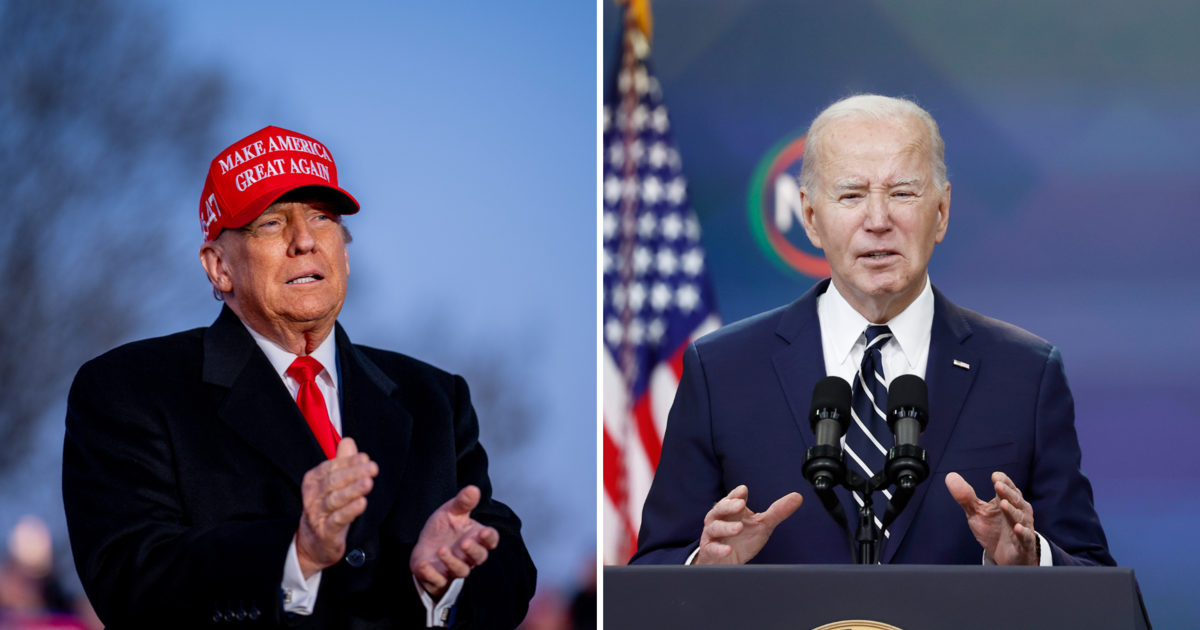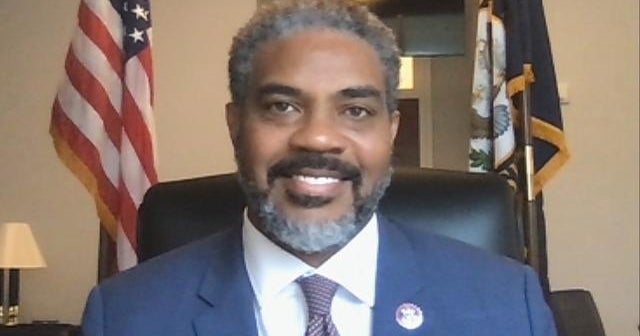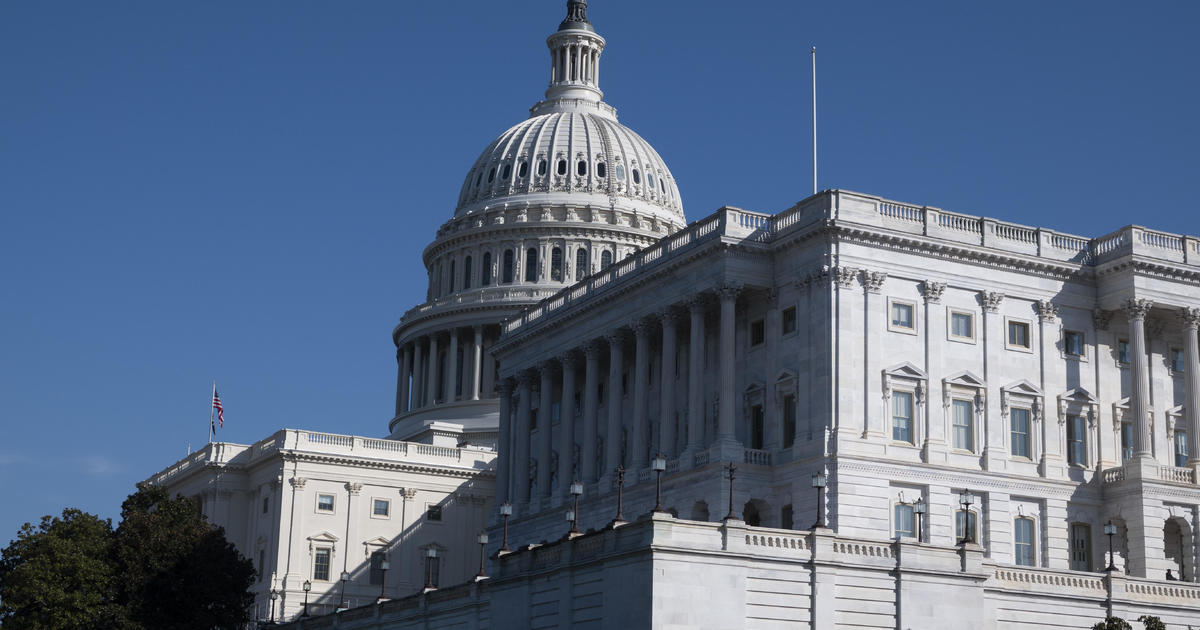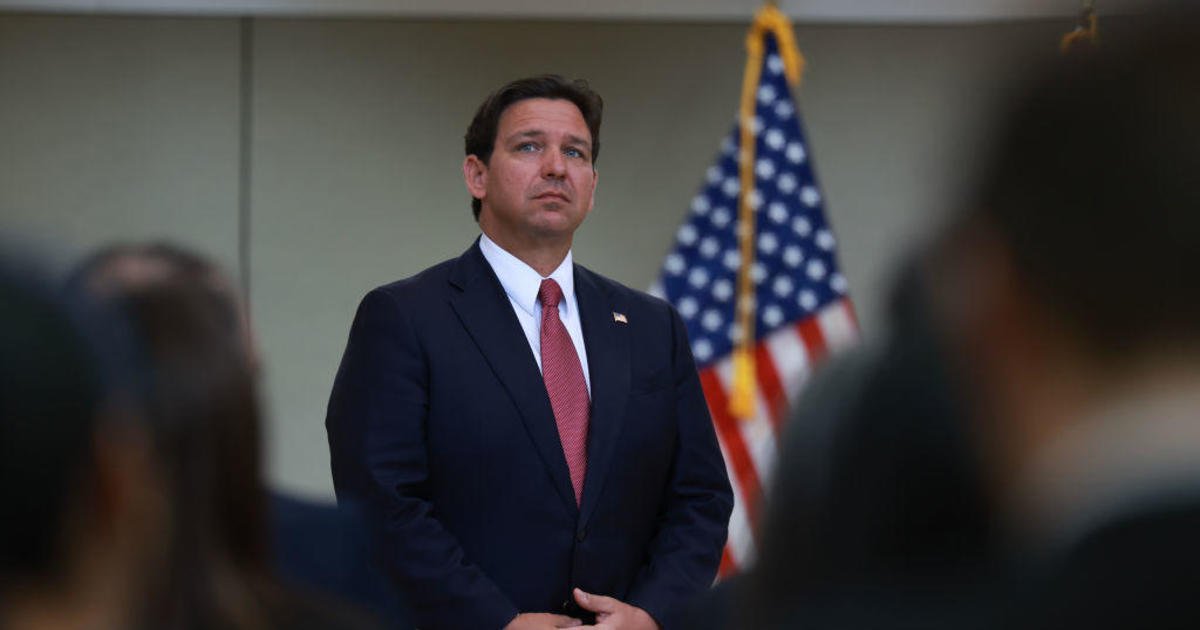Democrats outline strategy to flip more statehouses over several years
The national Democratic campaign arm funding state legislative candidates unveiled a multi-cycle strategy Monday laying out its plan to gain control of more than half of the country's legislative chambers by 2030.
A memo first shared with CBS News outlines the Democratic Legislative Campaign Committees long term targets including chambers in Wisconsin, Pennsylvania and Georgia — three presidential battleground states — as well as North Carolina and Kansas.
"We can't just get caught up in the places where we can flip majorities today, because we also have to build for the future," DLCC President Heather Williams told CBS.
Republicans currently control 57 chambers to Democrats 41, which includes Michigan, a state that is currently split due to two vacancies but has a Democratic House Speaker. Nebraska's nonpartisan legislature is not included.
The first step Democrats outlined is breaking up Republican supermajorities in states where the party controls the governor's mansion, including Kansas, North Carolina and Wisconsin. A supermajority means one party has enough members in a state legislature to override a governor's veto without any votes from the minority party. Breaking through this cycle will be an uphill battle for Democrats.
Williams pointed to North Carolina specifically to underscore the importance of the governor's veto power. North Carolina Republicans overrode a veto by Democratic Gov. Roy Cooper, passing a 12-week abortion ban. Additionally, the supermajority has afforded state Republicans the ability to gerrymander maps.
In recent decades, sweeping GOP majorities in battleground states have given Republicans an advantage in redistricting years further solidifying their power in critical states.
"Republicans are rolling back our rights — on all kinds of things," Williams said.
North Carolina will be one of the most competitive governor's races in 2024 as Democrats try to prevent a Republican governing trifecta. Major investments flowing into the state from the DLCC could not only boost state-level candidates but also impact the race for governor.
In ruby red Kansas, Democrats need two seats to break the supermajority in the House and three seats to break the Senate supermajority. Doing that will be a challenge given that statehouse races are the main general election attraction in the state this cycle. The DLCC has not yet released a list of state-level Republican targets.
Wisconsin's Assembly and Senate are also GOP supermajorities. But last week, Democratic Gov. Tony Evers signed new legislative maps into law. The maps are almost evenly divided among Democrats and Republicans districts for both chambers, according to an analysis from The Milwaukee Journal Sentinel.
When asked about the likelihood of flipping either chamber in Wisconsin, Williams said, "Our team is knee deep in understanding what this means."
Another defining part of the DLCCs long-term strategy is building toward more Democratic governing trifectas.
In Pennsylvania, Democrats control the state House and governor's mansion. If they can defend both and flip the Senate in 2026, Democrats will have the power of another governing trifecta in a presidential swing state.
The organization is also making long-term investments in Georgia, a state once considered a GOP stronghold turned battleground. The 2022 runoff for the U.S. Senate solidified Georgia's purple status, though it's still governed by a Republican trifecta. According to the memo, Democrats have identified opportunities to gain ground in the Georgia House.
Last month, the group said it had raised over $21 million of the $60 million target budget — the largest ever for the committee.
The DLCC announced its first "battleground investments" in December, which included some of the long term targets identified in Monday's memo as well as New Hampshire, Michigan, and Arizona.
The organization expects galvanizing issues such as abortion rights to turn out Democratic voters in battleground states amid waning enthusiasm for President Biden.
"I think that the issues are still an enormous driver," said Williams. "Michigan and Florida are like prime examples of complete contrasts. You see that Democrats are working to expand rights," versus "Republicans meddling in sort of all of these abstract fake issues, and really trying to put a layer of control over the decisions that people make for their lives and their families."



